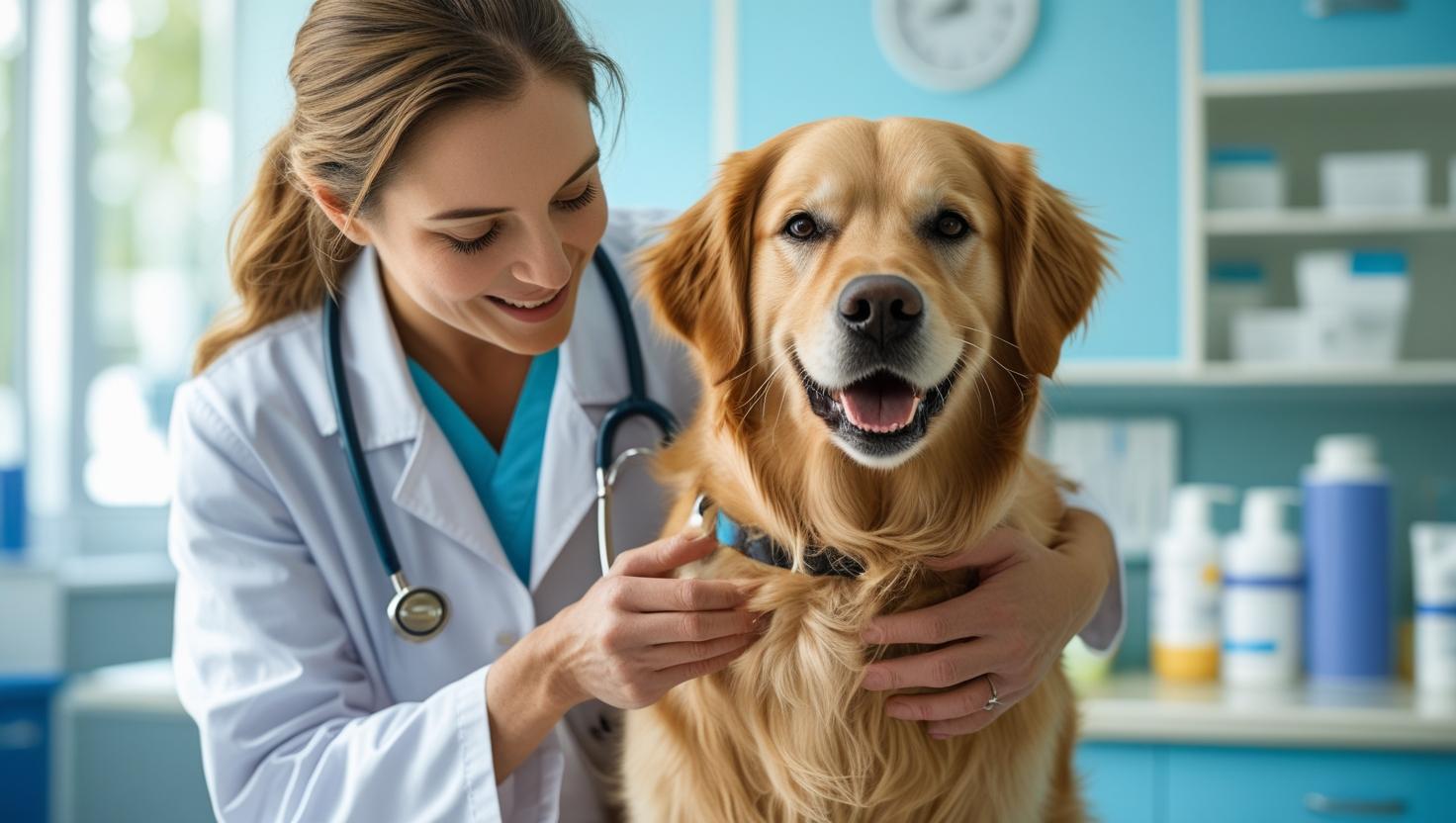Did you know? Taking your pet for vaccinations is just cosmetic surgery. The true key to their health lies in a comprehensive physical exam! Physical exams, blood tests, and urinalysis are the keys to your pet's health.
Why do I need regular physical examinations?
During vaccinations, veterinarians only perform a quick external examination, but they can't reveal liver and kidney function, endocrine problems, or the condition of internal organs. Regular health checkups, especially for older pets, can help detect problems early, making treatment more effective.
- For pets over 6 years old : Blood tests and urine analysis are recommended every two years.
- For pets over 10 years old : It is best to have a comprehensive health check-up every year.
Such regular checkups can detect common diseases such as kidney disease, diabetes, and endocrine disorders early, allowing your pet to live a healthier and happier life.
How important are blood tests and urinalysis?
Blood tests can check blood cell count, liver and kidney function, and metabolic indicators such as red blood cells, white blood cells, ALT, creatinine, etc. These data can reveal potential health problems.
Urinalysis is a good helper for kidney function. It can detect proteinuria, diabetes and urinary tract infection, and detect urinary system diseases at an early stage.
Health Tips for Senior Pets
As your pet ages, they face increased risks of heart disease, kidney disease, and cancer. Regular health checkups not only extend your pet's lifespan but also improve their quality of life. Remember, cats are known for hiding illnesses, requiring careful care and regular checkups.
Summary: Have a physical examination every year to have peace of mind and security!
Don't keep your pet's health a secret. Start scheduling regular checkups today! Through blood tests, urinalysis, and professional veterinary evaluations, you can keep your pet disease-free and happy.
Guide to Interpreting Blood Test Reports
Clinical significance of abnormal values
Elevated liver enzymes:
May indicate hepatitis, liver damage, or biliary tract disease 3 7
Further imaging examination is needed to confirm the diagnosis
Abnormal renal function indicators:
- Elevated creatinine level indicates renal function decline 3 4
- Proteinuria may be an early sign of kidney disease
Abnormal blood counts:
- Increased white blood cells may indicate infection or inflammation6 7
- Thrombocytopenia requires vigilance for coagulation problems
Renal function indicators:
- Creatinine
- Blood urea nitrogen (BUN)
- Phosphate concentration
Endocrine and metabolic indicators:
- Blood glucose concentration
- cholesterol
- thyroid hormones
Analysis of comprehensive physical examination items
Core items of blood tests
Complete Blood Count (CBC)
A complete blood picture can assess the following important indicators6 4 7 :
- Red blood cell count : To detect anemia or polycythemia
- White blood cell count : To assess infection or immune system status
- Platelet Count : Understanding Blood Coagulation
-
Hematocrit : Assess dehydration and anemia

Twelve biochemical function indices
Biochemical tests cover the functional assessment of multiple organ systems3 7 8 :
Liver function indicators:
- ALT (alanine aminotransferase): Normal values for dogs are 10-109 U/L, and for cats are 25-97 U/L
- AST (aspartate aminotransferase): Normal values for dogs are 13-15 U/L, and for cats are 7-38 U/L
- ALP (alkaline phosphatase)
- Total protein and albumin: Normal values for dogs are 5.4-7.5 g/dL, and for cats are 6.0-7.9 g/dL

Renal function indicators:
- Creatinine: Normal values for dogs are 0.5-1.7 mg/dL, and for cats are 0.9-2.2 mg/dL.
- Blood urea nitrogen (BUN): Normal values for dogs are 8-28 mg/dL, and for cats are 19-34 mg/dL
- Phosphate concentration
Endocrine and metabolic indicators:
- Blood glucose concentration
- cholesterol
- thyroid hormones
The key significance of urine analysis
Urine testing is an important tool for assessing kidney health1 4 5 and can detect:
- Proteinuria : an early indicator of kidney disease
- Diabetes : Diabetes Screening
- Signs of infection : bacterial infection or urethritis
- Crystals : Risk Assessment for Urinary Stones
Urinalysis: The Guardian of Kidney Health
Urinalysis is an important tool for assessing kidney health. It can detect proteinuria (an early indicator of kidney disease), glucosuria (diabetes screening), signs of infection, and crystals (assessing the risk of urinary stones). 4 When the kidneys are unable to concentrate urine properly, water loss occurs, which is why early symptoms of chronic kidney disease include increased water intake and urination. 2
Common health problems in senior pets
heart disease
Early symptoms of heart disease in dogs include coughing, difficulty breathing, decreased strength, and loss of appetite. Small breeds such as Miniature Poodles, Miniature Poodles, Chihuahuas, and Poodles are more susceptible to heart disease .
Kidney disease
The four early signs of chronic kidney disease include increased water intake, increased urination, weight loss, and decreased appetite. 2 These symptoms are often mistaken for aging, but aging does not necessarily mean illness. 2
Endocrine diseases
Common endocrine and metabolic disorders include hyperadrenergic syndrome (Cushing's disease), hypothyroidism, and diabetes mellitus. 7 Symptoms of diabetes mellitus include increased appetite, increased drinking, increased urination, and weight loss. 7 8
Strengthen health protection through nutritional supplements
When abnormal indicators are found in the health examination of your pet, in addition to following the veterinarian's treatment recommendations, appropriate nutritional supplements can also provide additional health support.
Heart health support
For pets who need extra support for their heart function,** Animal Essentials Heart Health Hawthorn Heart Antioxidant Formula** provides natural heart protection and is rich in antioxidants. PetAlive Heart & Circulation Tonic ** helps improve blood circulation and support heart health.
Liver care
When blood tests show elevated liver function markers like ALT and AST, Animal Essentials - Liver Defense (Milk Thistle ) is a natural liver protectant that helps detoxify and repair the liver. PetAlive Immunity & Liver Support not only supports liver health but also boosts the immune system.
Kidney function support
For pets with abnormal kidney function, ** PetAlive Kidney Support** can help maintain kidney health and support normal circulatory function. ** Animal Essentials Tinkle Tonic ** specifically targets urinary tract health and helps maintain normal urinary tract function.
Overall health support
Fresh Scottish salmon oil and New Zealand algae oil are rich in omega-3 fatty acids, which not only support heart health but also provide anti-inflammatory benefits for overall well-being. Animal Essentials Plant Enzymes & Probiotics supports digestive health and improves nutrient absorption.
Special considerations for cats
Cats are particularly adept at hiding their pain. They tolerate pain very well and often don't show obvious symptoms until an illness is already quite advanced. 1 Therefore, regular health checkups are even more important for cats. Common health issues in cats include chronic kidney disease, hyperthyroidism (especially in older cats), and urinary tract diseases. 1
Establish a complete health management plan
Regular inspection schedule
-
Infancy (0-1 years) : Basic physical examination, vaccine evaluation and parasite examination1
-
Adulthood (1-7 years) : Have a health check at least once a year, and it is recommended to include blood and urine tests .
-
Seniors (7 years old and above) : 1-2 health checkups per year, including advanced checkup items 1
Key points of home observation
Owners should record their pet's daily changes in diet, bowel movements, activity level, and other factors. This information can be very helpful to veterinarians in their diagnosis. 1 Warning signs to watch out for include:
-
A sudden increase in water intake
-
Changes in urination frequency or volume
-
Unexplained weight loss
-
Significant changes in appetite
-
Significant decrease in activity
Summary: Invest in health and gain long-term companionship
Regular health checkups not only help detect common illnesses like kidney disease, diabetes, and endocrine disorders early, but also help your pet live a healthier and happier life. By combining scientific examination methods with appropriate nutritional supplements, we can establish the most comprehensive health protection network for your furry friends.
Remember, prevention is better than cure. Rather than spending money treating advanced illnesses, it's better to prevent or detect problems early, saving both money and your pet's suffering. Start today by scheduling regular checkups for your pet. Through blood tests, urinalysis, and professional veterinary evaluations, along with appropriate nutritional supplements, you can keep your pet disease-free and enjoy a healthy, happy life!

